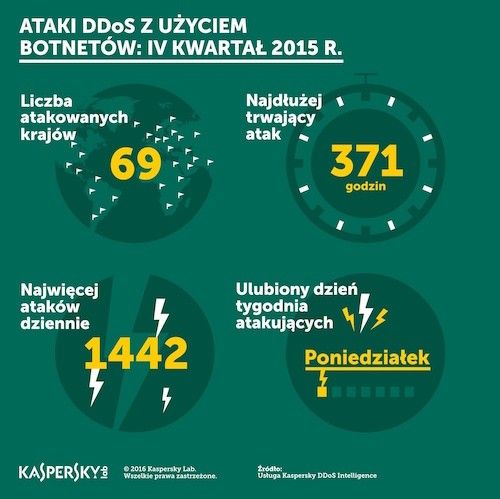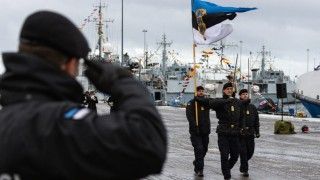- KOMENTARZ
- WIADOMOŚCI
The revival of Intermarium – Poland can talk the talk but can it walk the walk?
The current geopolitical situation in the region of South-East Europe has given us much to reflect on, especially in terms of national and international security. It is no revelation that the problems have been caused by the history of each country, which holds key to many possible developments both now and in the future. That is the reason many politicians willingly consult the past of their homelands, searching for doctrines, ideas and solutions to present day problems. This is the case of the current Polish leadership. One of the most renowned Polish political thoughts of the 20th Century was the concept of “intermarium” propagated most loudly by Jozef Pilsudski, Polish Chief of State – writes Ksenia Szelachowska in an article for National Centre for Strategic Studies at Defence24.pl blog.
This however was never implemented. The main reason behind “intermarium” was mainly to oppose Russian imperialism through creation of a federation of countries in Central and Eastern Europe. In Pilsudski’s opinion, Russia was an “Asian beast hidden behind a European mask”. Such international entity was supposed to comprise of states located from the Baltic to the Black Sea. The geographical scope of the idea has varied in the course of time and has proven to be flexible for pundits. However, the following states were included in most of the projects drafted by scholars and politicians: Estonia, Latvia, Lithuania, Poland, Belarus, and Ukraine. There was also the Czech Republic, Slovakia, Hungary and Romania.
Pilsudski’s theory has provoked lively discussion ever since it was introduced into politics. It was particularly popular around the 1920s and was referred to multiple times by Polish politicians after the transition in 1989. The idea behind it has not changed much. The threat of increasing Russian influence in the Polish region is still vivid and has somehow earmarked Polish political strategies. “Intermarium” was loudly promoted by Lech Kaczynski, Polish President from 2005-2010 and became a line of reference for his foreign affairs strategy. It was especially demonstrated in the area of energy cooperation, as Kaczynski initiated a series of meetings between Ukraine, Azerbaijan, Georgia, Moldova, Romania and the Baltic States. He wanted to pursue diversification of energy suppliers and an open European market to the Azeri producers via Odessa-Brody-Gdansk pipeline.
Through his visits and assurances of highest estimation, Kaczynski strived to establish a network of contacts between the Polish and Caucasian elites. He also looked further in his ambitions in the hope of using opportunities offered by Kazakh energy resources. In the end, the leadership of Kazakhstan proved to be too heavily influenced by Russia to join Kaczynski at the events initiated by him. After Former President Kaczynski’s tragic death, the idea disappeared from presidential foreign politics in Poland. Recently however, President Andrzej Duda (a member of the same conservative political party as Kaczynski) referred to the topic during his visit in Romania at the beginning of November 2015. He mentioned two crucial aspects in his speech relating to the “intermarium” concept.
Firstly he urged for all countries of Central and Eastern Europe to speak in a common voice. Secondly he added that Poland will pursue enlargement of the NATO bases in the region. In this context it is worth noting that around the same time of the meeting, the Romanian President, Klaus Iohannis hosted the heads of the Baltic States, Slovakia, Hungary and Bulgaria. He openly stated his determination to continue implementing the plan drafted by President Kaczynski, for Poland to play a greater role in the region.
Pursuing the strategy outlined nearly a century ago definitely has its advantages and flaws. The geopolitical situation of Central and Eastern Europe is extremely fluctuant and the Polish government has to find a policy which will not only guarantee it a strong leadership position in the region, but also a long-term, coherent approach which would reach beyond the contemporary situation. Such possibility arises in Turkey. With Poland’s rising ambition to become a leader in the region and Turkish intention to become a valuable player in the Middle East and beyond, it seems to be a matter of time for both states to recognise any possibilities for mutual cooperation. Turkey has been experiencing much tension, both internally and externally. The reason for such decreasing conditions in the country and its administration was the lack of government and elections which took place at the beginning of November.
There is also the escalation of the conflict at the Turkish borders, in Syria and in Iraq. Turkey, similar to Poland, shares a long and rather turbulent history of diplomatic relations with Russia. For instance the 1990s is deemed by many as the lost years in the Turko-Russian affairs, due to many divergences arising in their foreign politics. However, the 2000s brought a definite ease in the relations. Nonetheless, the escalation of civil war in Syria has become a bone of contention, as leaders of the states stand at opposing sides of the conflict. There have been more and more clashes at the Turko-Russian front including the most recent one – the downing of a Russian aircraft by Turkish military forces. With such incidents happening at elevated frequency, there is much possibility for open escalation of the conflict between two states.
Before any increase in tensions, Turkey has to revise the possible impacts on its economy, especially with reference to the energy sector. Ankara now has an invaluable opportunity to cut off Russian supplies and make use of its own gas- and oil-rich region. Turkish leadership has already made the first steps in this direction, launching the construction of Trans-Anatolian Gas Pipeline (TANAP). The finish date is planned before 2018, however it might be insufficient. Along with an attempt to become more independent, Ankara strives to prove itself as an invaluable player to the international community, which has to be considered seriously when talking about the region. President Recep Tayyip Erdogan has acquired a strong stance against pressure coming from Moscow to apologise for downing the Russian aircraft and at this stage there is no sign of possible improvement in relations for the near future.
Both Poland and Turkey seem to have found their place in the region, which completes their ambitions. It seems that unintentionally, Russia became a common point of reference for both states. This may result in finding mutual interest in tightened cooperation, reflecting very much in the saying, “enemy of my enemy is my friend”. Such a theory is definitely not exaggerated, since both countries have already recognised themselves as valuable players in the region. However, in the contemporary geopolitical context, it is high time for Poland to implement the regional strategy of “intermarium”, and thus become the leader. What is more, Azerbaijan is likely to become another common point of reference for both the foreign affairs in both countries. Poland would very much benefit from the launch of the Odessa-Brody-Gdansk pipeline, obtaining alongside Ukraine a role of an energy hub. The profits are conspicuous, “served on a silver plate”, one might say. The question is whether Poland dares to sit at the table with players even from outside its region?
Article inspired by Andreas Umland short brief on Intermarium: https://www.linkedin.com/pulse/could-poland-ukraine-turkey-create-anti-kremlin-alliance-umland?articleId=6078172362644217856#comments-6078172362644217856&trk=prof-post
Ksenia Szelachowska is a Ph.D. candidate at the Polish Academy of Sciences and is currently working for the Turkey Institute.
The National Centre for Strategic Studies (NCSS) is an independent, non-partisan analytical and research institute established to invigorate debate, promote creative and innovative thinking as well as provide expertise on broad spectrum of national security issues. The Centre will focus particularly on planning and investments options for the future Polish Armed Forces and developing its capabilities. The National Centre for Strategic Studies strives to develop the culture of strategic thinking in Poland; its objectives are to be achieved through qualitative and quantitative analyses, academic research, publishing and educational activities. In our research activities we cooperate with the high-ranked national and foreign think-tanks.
NCSS ’s goal is to enable policymakers to make informed decisions in matters of strategy, national security, investments and resource allocation for broadly defined defence sector. NCSS provides timely, impartial and insightful analyses to senior decision-makers in the executive and legislative.















